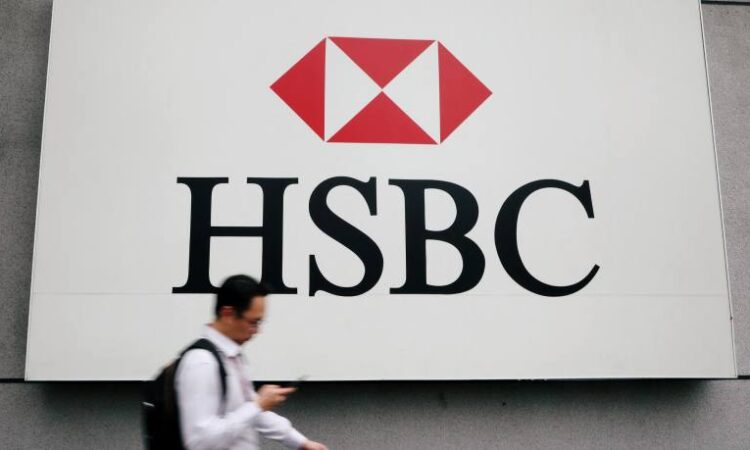
HSBC shareholders are expected to approve a vote to formally scrap the bankers’ bonus cap at its annual general meeting on May 3, opening the door for Europe’s largest bank by assets to set higher levels of variable pay for senior management in the UK and other markets outside the EU.
The vote follows the lifting of the bonus cap — which limited bankers’ bonuses to a maximum of double their base pay — in October by the Bank of England’s prudential arm. For some UK banks, including HSBC, Lloyds and Barclays, the bonus cap was incorporated into their corporate rulebooks via a shareholder vote, necessitating fresh shareholder approval for its removal.
While 20 per cent of HSBC shareholders at last year’s AGM voted against a proposal to approve directors’ remuneration, analysts expect this year’s vote to go in favour of removing the bonus cap.
“I don’t think there’s a strong risk that we’re going to see this proposal being rejected,” said Lindsey Stewart, director of investment stewardship research at Morningstar, adding that he expects general shareholder support for management’s view of “what needs to be done”.
Such a vote may well set the tone for similar shareholder votes at Barclays and Lloyds in the next couple of weeks.
“[HSBC] is a bellwether for shareholder opinion as they’re going first. From this we’ll be able to gauge what the appetite is for increasing variable pay,” said Stewart.
Mardi MacGregor, partner in the financial services team at UK law firm Fox Williams, agrees that “an affirmative vote will certainly set the tone for other votes”. She expects “the industry to move together on this”.
However, even in the event of an affirmative vote, any change in remuneration packages is likely to be measured.
“Other banks will be watching this vote with interest, but we are unlikely to see any drastic shift overnight,” she said. “Banks will still have a regulatory obligation to set ‘an appropriate’ overall mix of fixed and variable pay.”
Stewart expects the HSBC vote to make the topic of executive pay a focal point for the UK. “A growing cohort of UK executives believe that allowing higher remuneration for senior management is imperative to talent retention and competitiveness at UK businesses,” he said.
He pointed to comments made by Julia Hoggett, CEO of the London Stock Exchange, who last year said there needed to be a “constructive discussion” about the approach to executive pay in Britain as part of broader efforts to boost the attractiveness of London’s capital markets.
The bankers’ bonus cap was introduced by the EU in 2014 in the wake of the global financial crisis to try and discourage excessive risk-taking by senior management. The cap, which applied to “material risk-takers”, restricted the payout of bonuses to 100 per cent of fixed pay, or 200 per cent where shareholder approval was obtained.
But MacGregor argues that the benefits of increasing variable pay for “material risk-takers”, i.e. senior management, may help banks better align risk to reward. “It will enable banks like HSBC to have greater flexibility over their cost base to deal with downturns. In the longer term it could enable banks to reduce their fixed costs — their real fixed pay,” she said.
‘Plain wrong’
Others, meanwhile, have warned that it is hard to make the argument to extend remuneration against a backdrop of widespread governance failures and costly fines.
“HSBC nearly went to the wall in 2012 when it was forced to pay $1.9bn after lapses in its anti-money laundering programme made it the bank of choice for drug cartels,” said Stephen Scott, founder and CEO of Starling Trust Sciences, which uses predictive analytics to monitor systemic risk.
Scott said that while the bank had staged “a remarkable turnaround against significant headwinds”, he cautioned that it is similarly “not unreasonable” for shareholders to question higher levels of executive compensation at the bank in the wake of recent setbacks.
In January, HSBC was fined £57mn by the Prudential Regulation Authority — the second-highest fine imposed by the regulator — for “serious failings” in connection with the UK’s Financial Services Compensation Scheme.
In the broader context of inflation and cost-of-living pressures for many in the UK, an open door to higher bonuses for a few top executives is also likely to strike some as coming at an inopportune time.
Paul Nowak, general secretary of the Trades Union Congress, the umbrella body for the UK labour movement, described the lifting of the bonus cap by the BoE in October as “obscene”.
Nowak said the HSBC vote showed a “huge disconnect” between Britain’s boardrooms and the lives of hard-pressed families. “At a time when millions are struggling to make ends meet, this is just plain wrong,” he said.





